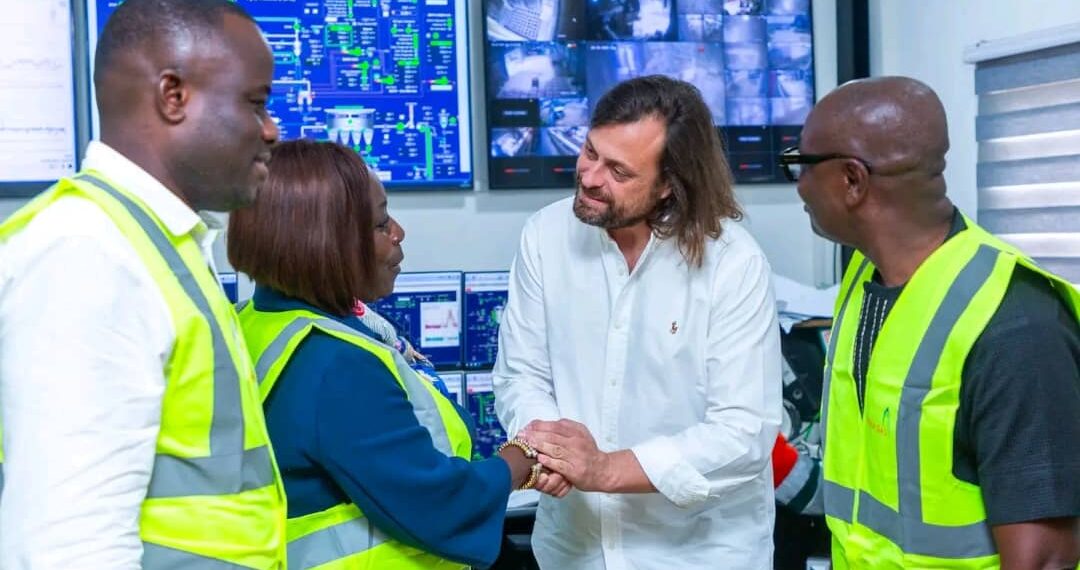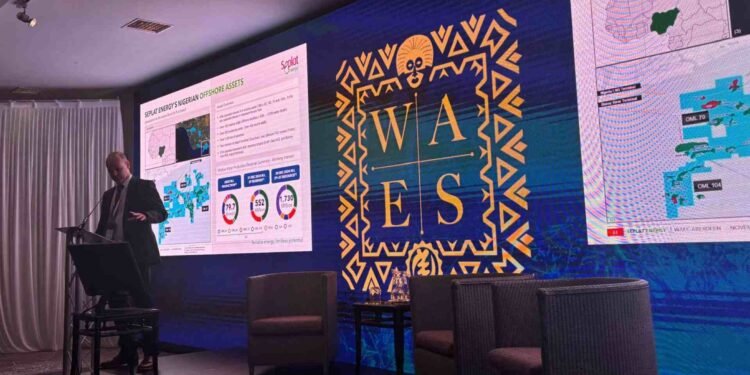The Chief Executive Officer of the Ghana National Gas Company (Ghana Gas), Ms. Judith Adjobah Blay, has embarked on a strategic working visit to Tema to deepen collaboration with key gas off-takers and reinforce Ghana’s agenda to power industrialisation through reliable gas supply.
The one-day visit aimed to strengthen business relationships and promote operational efficiency between Ghana Gas and major industry players in Tema. It forms part of broader efforts by Ghana Gas to align its operations with the government’s vision of building a 24-hour economy anchored on industrial transformation and energy security.
“The focus is to ensure that Ghana Gas remains not just a supplier, but a dependable energy partner for industry.
“This is part of our commitment to delivering sustainable energy solutions that fuel growth.”
Ms. Judith Adjobah Blay, CEO of Ghana Gas
During her visit, Ms. Blay held high-level discussions with leadership from several strategic gas off-takers, including Fujian Sentuo Ceramic Tile Company Limited, Continental Blue Investment Ghana Limited, and the West African Gas Pipeline Company (WAPCo).
These engagements were focused on improving the flow of gas to industries in the Tema industrial enclave and strengthening infrastructure for reliable transportation.

“Operational efficiency must be a shared priority across the value chain. From production to transportation to off-taking, every link must perform at optimum levels if we are to deliver sustainable industrial energy.”
Ms. Judith Adjobah Blay, CEO of Ghana Gas
She underscored the importance of seamless coordination among stakeholders in ensuring that supply meets demand, especially as Ghana accelerates its industrialisation agenda.
In one of the visit’s most significant meetings, Ms. Blay met with Mr. Ningquan Xu, Chairman of Sentuo Group, to discuss Ghana Gas’ pivotal role in supporting downstream refining operations at the newly established Sentuo Oil Refinery Limited.
“Gas is a key enabler for industrial activity, and we want to be ahead of the curve in helping industries like Sentuo realise their full potential.”
Ms. Judith Adjobah Blay, CEO of Ghana Gas
The meeting highlighted the mutual commitment between Ghana Gas and the refinery to collaborate on energy solutions that drive both economic output and long-term sustainability.
Deepening Energy Partnerships

Ms. Blay also reaffirmed Ghana Gas’ longstanding partnership with the Volta River Authority (VRA) in supporting the national power generation framework. This collaboration is critical to ensuring grid stability, sufficient baseload generation, and the broader push for energy sustainability in Ghana.
The Energy Ministry’s strategic focus on transitioning to more gas-based power generation aligns with Ghana Gas’ own direction, which has increasingly shifted toward enhancing the role of gas in driving economic and industrial growth.
The visit concluded with an inspection tour of the Tema Regulating and Metering Station (TRMS), a key node in the gas distribution system.
Ms. Blay commended the TRMS staff for their “exceptional dedication” and reaffirmed management’s commitment to maintaining the operational integrity and safety of Ghana’s energy infrastructure.
“This station is a critical component of our gas delivery system. The stability and security of the entire energy value chain depend in part on the performance of facilities like this.”
Ms. Judith Adjobah Blay, CEO of Ghana Gas
Ms. Blay’s engagements reflect Ghana Gas’ ongoing shift in focus from just energy supply to “Gas for Industrialisation”, a policy direction aimed at making natural gas the cornerstone of Ghana’s economic transformation.

This aligns with President John Dramani Mahama’s 24-hour economy agenda, which hinges on consistent, affordable, and sustainable energy to support industrial production across multiple shifts.
“We’re not just supplying gas—we’re building the foundation for Ghana’s future industrial competitiveness.”
Ms. Judith Adjobah Blay, CEO of Ghana Gas
Ghana Gas is expected to play a central role in powering manufacturing hubs, special economic zones, and industrial parks with steady gas supply—reducing reliance on imported fuels and cutting production costs.
The working visit underscores Ghana Gas’ commitment to building strong industry linkages, ensuring energy security, and aligning national energy infrastructure with economic development goals.
By fostering deeper cooperation with off-takers and investing in efficient infrastructure, Ghana Gas is laying the groundwork for a more industrially resilient and economically competitive Ghana.
As Ghana pushes for job creation, manufacturing expansion, and macroeconomic stability, natural gas will remain at the heart of this transition—and Ghana Gas is positioning itself to lead that charge.
READ ALSO: Vice President Champions Bold National Action against Drug Trafficking























